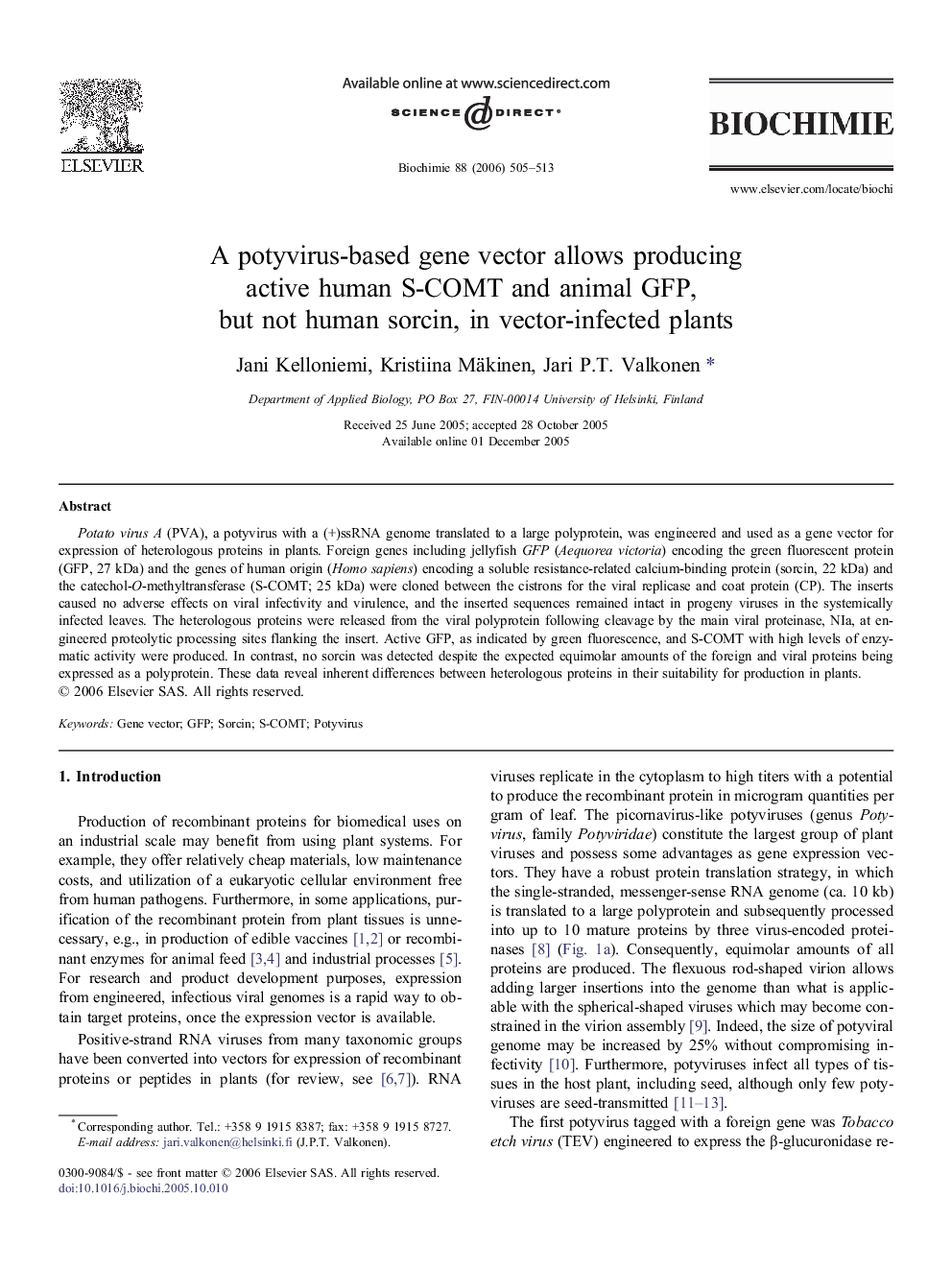| Article ID | Journal | Published Year | Pages | File Type |
|---|---|---|---|---|
| 1953496 | Biochimie | 2006 | 9 Pages |
Potato virus A (PVA), a potyvirus with a (+)ssRNA genome translated to a large polyprotein, was engineered and used as a gene vector for expression of heterologous proteins in plants. Foreign genes including jellyfish GFP (Aequorea victoria) encoding the green fluorescent protein (GFP, 27 kDa) and the genes of human origin (Homo sapiens) encoding a soluble resistance-related calcium-binding protein (sorcin, 22 kDa) and the catechol-O-methyltransferase (S-COMT; 25 kDa) were cloned between the cistrons for the viral replicase and coat protein (CP). The inserts caused no adverse effects on viral infectivity and virulence, and the inserted sequences remained intact in progeny viruses in the systemically infected leaves. The heterologous proteins were released from the viral polyprotein following cleavage by the main viral proteinase, NIa, at engineered proteolytic processing sites flanking the insert. Active GFP, as indicated by green fluorescence, and S-COMT with high levels of enzymatic activity were produced. In contrast, no sorcin was detected despite the expected equimolar amounts of the foreign and viral proteins being expressed as a polyprotein. These data reveal inherent differences between heterologous proteins in their suitability for production in plants.
